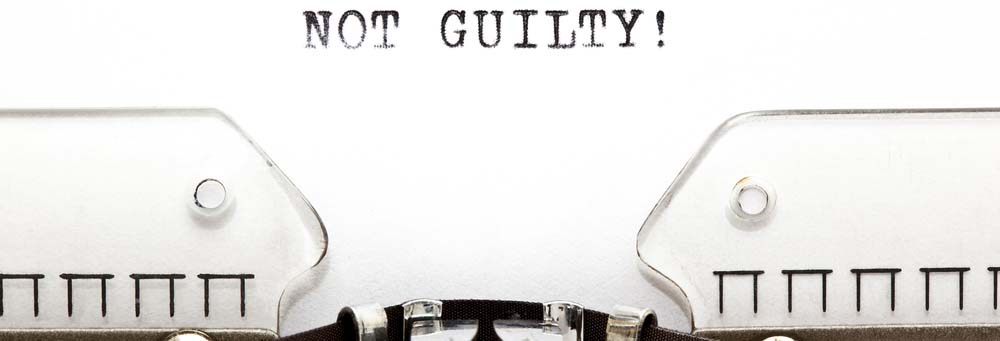Contact Us
KOGARAH OFFICE
Suite 309 – 310, Level 3
13A Montgomery Street
KOGARAH NSW 2217
SYDNEY CITY OFFICE
Ground Floor
54 Martin Place
SYDNEY NSW 2000
Email: solicitors@gmhlegal.com
Phone: (02) 9587 0458
Facsimile: (02) 9587 2936
BAIL
The Bail Bill 2013 was introduced into NSW Parliament by the NSW Attorney-General on 1 May 2013. You can read the text of the Bill, and also the second reading speech. The Bill passed both houses of Parliament and was assented to on 27 May 2013.
These new bail laws will include the removal of offence-based presumptions, a right to release for fine only offences (and most offences under the Summary Offences Act 1988 (NSW)) and an increase to the number of times a juvenile can make a bail application.
Many organisations have been advocating changes to the existing bail laws, including:
- removal of the presumption against bail
- entitlement to release for minor offences
- requirement that the special vulnerability or needs of the accused are considered when bail decisions are made
- requirement that bail conditions are no more onerous than necessary
- improved guidance for police about their options when responding to a breach of bail.
In considering the question of bail the authorised officer or court must consider the criteria in s 32 of the Act, which are mandatory and exhaustive: R v Hilton (1987) 7 NSWLR 745.
The criteria for awarding Bail are contained in s 32 are broken into the following broad subheadings, each which have further specific factors which must be taken into account:
- The probability of whether or not the accused will appear in court in respect of the offence for which bail is being considered, having regard to certain matters only;
- The interests of the accused, having regard to certain matters only;
- The protection of certain people, including any person against whom it is alleged that the offence concerned was committed and the close relatives of any such person.
- The protection and welfare of the community, having regard to certain matters only.
LIKELIHOOD OF BAIL
Whether you are likely to be granted bail depends largely upon the seriousness of the offence charged and your past offending behaviour, if any.
Please note that bail is not automatic, the Court may take away your bail or change its condition at any time before you go to Court, and if you want to change your bail conditions you must go back to Court.
The Bail Act sets out the relevant factors in deciding whether you should be granted bail:
If the alleged offence is relatively minor, there is a right to bail or at least a presumption in favour of bail.
If the alleged offence is serious, there is a presumption against bail and you will have to satisfy the Court why you should be granted bail. These offences include:
- Certain drug offences
- Certain firearm offences
- Serious property offences if you had had a conviction in the last 2 years for similar offences
- Offences involving riot or participating in large scale public disorder offences
In really serious cases, such as murder, bail would only be granted in highly exceptional circumstances
Factors considered by the Court
When deciding whether to grant bail, the Court will look at the nature and circumstances of the offence, including:
- Whether any weapons were use
- Strength of the police case
- Whether you are already on bail
- Whether you have previously failed to attend court when required to do so
- Your background and community ties
- Your family and employment situation
- Who you live with
- Our criminal records
- The likelihood of you committing more offences and/or interfering with witnesses
In most circumstances, the Court will grant you bail unless the Prosecutor can demonstrate that there is an unacceptable risk of you committing further offences or failing to appear.
For more information, please refer to the Legal Aid’s ‘Understanding bail’ section.
CONDITIONS OF BAIL
The court has the power to grant bail with or without conditions.
The Bail Act requires unconditional bail be granted unless a Court concludes conditions should be imposed for the purpose of:
- Promoting effective law enforcement
- The protection and welfare of any specially affected person
- The protection and welfare of the community
- Reducing the likelihood of future offences being committed by promoting the treatment or rehabilitation of an accused person.
Conditions can include requirements such as:
- Living at a certain address
- Reporting to police on a regular basis
- Not contacting witnesses or alleged victims
- Not driving a motor vehicle (for traffic offences only)
- Not drinking alcohol
- Attending drug and alcohol courses
- Attending rehabilitation or counselling courses
- Attending medical appointments
- A curfew
- Not going to certain areas
- Not contacting certain people
- Surrounding your passport
- Agreeing to pay money if you don’t attend Court
Can I change my bail conditions?
After you have been granted bail you may need to change your bail conditions, for example if you change your residential address or get a new job.
Please note that you must attend the Court and make an application to vary your bail conditions. In addition be aware that your current bail conditions stand until your application for variation to your bail conditions has been granted by the Court.
What happens if I breach my bail conditions?
If you breach your bail conditions the Police may arrest you. You may be held in custody and taken to Court. The Magistrate will decide whether you should be given bail again.
What is a cash bail?
A police officer or Court can release a defendant on bail after they make a deposit of money as security for appearing in Court on the day and at a time and place provided to the defendant.
Please not that cash bail only applies if the charge is not an indictable offence.
The court can still issue a warrant if a cash bail is granted and a defendant fails to appear.
Occasionally, a condition used when a defendant apply for cash bail is the naming of a surety. A surety is a person who guarantees that the defendant will attend his/her Court hearing. The surety is required to deposit the security as a commitment that the defendant will appear in Court. If the defendant fails to appear, the money or property may be forfeited by the Court.
What is Security bail?
If you are granted a security bail, you or your surety will only be required to forfeit a specific amount of money if you do not appear before the Court. Unlike cash bail, you will not be asked to hand over the money or security over right away, only if you don’t comply with your bail.
This is a less secure condition than cash bail and for this reason is used far less often in more serious cases.
Special bail conditions relating to treatment and rehabilitation
If you’re over the age of 18 and alcohol and/or drugs have contributed to the commission of your alleged offence, the Court may require you to participate in a drug and/or alcohol rehabilitation program as a condition of bail.
For more information, please refer to Legal Aid NSW’s ‘Bail’ section.
BAIL APPLICATION TO THE SUPREME COURT OF NSW
Under the Bail Act, you are only allowed one application for bail unless you can show new facts or circumstances have arisen since the previous application However if your bail is refused or granted with certain conditions that you cannot meet, you can then apply To the Supreme Court of NSW for bail.
The judge will want to hear evidence from people who support your new bail application. These could include people you live with or people who will put money/property to secure your bail.
If you have been convicted or sentenced in the Local court, you must lodge your appeal to the District Court before applying to the Supreme Court for bail.
CRITERIA TO BE CONSIDERED IN BAIL APPLICATION – SECTION 32
Bail may be refused only in conformity with the Bail Act, and the only matters which may be considered are those set out in section 32.
For your information, in summary section 32 of the Bail Act provides:
The probability if whether or not the person will appear, having regard to:
- Background and community ties as indicated by the history and details of the person’s residence, employment, family situation and prior criminal record
- Background and community ties as indicated by the person’s ties to extended family and kinship and other traditional ties
- Any previous failure to appear
- Circumstance of offence, nature, seriousness, strength of evidence, severity of possible penalty
- Specific evidence indicating whether it is probable that a person will appear.
The interests of the person having regard to:
- Period the person may spend in custody and conditions under which he or she would be held
- Needs of the person to be free to prepare for appearance and to obtain legal advice
- Needs of person to be free for any lawful purpose
- Whether person is incapable by intoxication, injury or use of drug or is otherwise in danger of physical injury or in need of physical protection
- If the person is under the age of 18 years or is an Aboriginal person or a Torres Strait Islander, or has an intellectual disability or is mentally ill, any special needs of the person arising from that fact.
The protection of:
- Any person against whom it is alleged that the offence concerned was committed
- The close relatives of such person
- Any other person the Court considers to be in need of protection because of the circumstances of the case
The protection and welfare of the community, having regard to:
- The nature and seriousness of the offence, in particular whether the offence is of sexual or violent nature or involves the possession or use of an offensive weapon or instrument within the meaning of the Crimes Act
- Whether or not the person has failed or has been arrested for an anticipated failure to observe a bail condition previously imposed in respect of the offence
- The likelihood of the person interfering with evidence, witnesses or jurors
- Whether or not it is likely that the person will commit any serious offence while at liberty on bail, but the authorised officer or court may have regard to this likelihood only if permitted to do so
- If the offence for which bail is considered is a serious offence, whether, at the time the person is alleged to have committed the offence, the person had been granted bail or released on parole in connection with any other serious offence
- If the offence involves the possession or use of an offensive weapon or instrument with the meaning of the Crimes Act, any prior criminal record, if known of the accused.
For more information, please refer to the Judicial Commission of NSW’s ‘Bail’ section.
CONDUCT OF BAIL APPLICATIONS
In summary, this is what you should expect when your bail application is heard in a Local Court:
- The prosecutor will present before the Court the circumstances of the offence and additional police facts
- The magistrate will the documents you have brought with you to Court
- The magistrate will ask the prosecutor whether he has a presumption in favour or against granting bail to you.
- Your solicitor will explain to the judge why you should be granted bail, making references to your ties to the community, residential history and other criteria as set out in section 32 of the Bail Act.
- After considering all the material before the Court, the magistrate will make a bail determination.
In summary, this is what you should expect when your bail application is heard in a District Court or the NSW Supreme Court:
- The Police will generally be represented by the Director of Public Prosecution or a crown prosecutor.
- The crown prosecutor will make a submission on his attitude toward granting you bail
- The crown prosecutor will present the Court with a bundle of documents.
- If evidence presented by the crown prosecutor is disputed by your lawyer, the judge may allow the cross examination (questioning by your lawyer) of the police officer in charge of your case
- Evidence will be called by your lawyer, possibly including your employer, a close relative or even yourself.
- Your lawyer will tell the Court why your should be granted bail
- After considering all the material before the Court, the magistrate will make a bail determination.
For more information, please refer to Legal Aid’s ‘Applying for Supreme Court bail’ section.
HOW MANY TIMES CAN I APPLY FOR BAIL?
According to the Bail Act, a Court is to refuse to hear another application for Bail unless
- The person was not legally represented the previous time
- News facts or circumstances have arisen
The Bail Act also prevents a lawyer from making a new application for bail unless he/she is satisfied of either of these two matters.
Therefore we encourage you to restraint from making an application for bail or to vary your bail conditions until you have as much evidence as possible to convince the Court to grant your application.
Call the experienced team at GMH Legal to assist you in your matter.
A free consultation with GMH Legal is an opportunity to gain deep insights into your legal situation and all of your options.
Why Choose GMH Legal?
- Over 60 years of combined legal experience
- Outstanding track record with a winning approach
- First appointment is always free
- Meet our team now.






